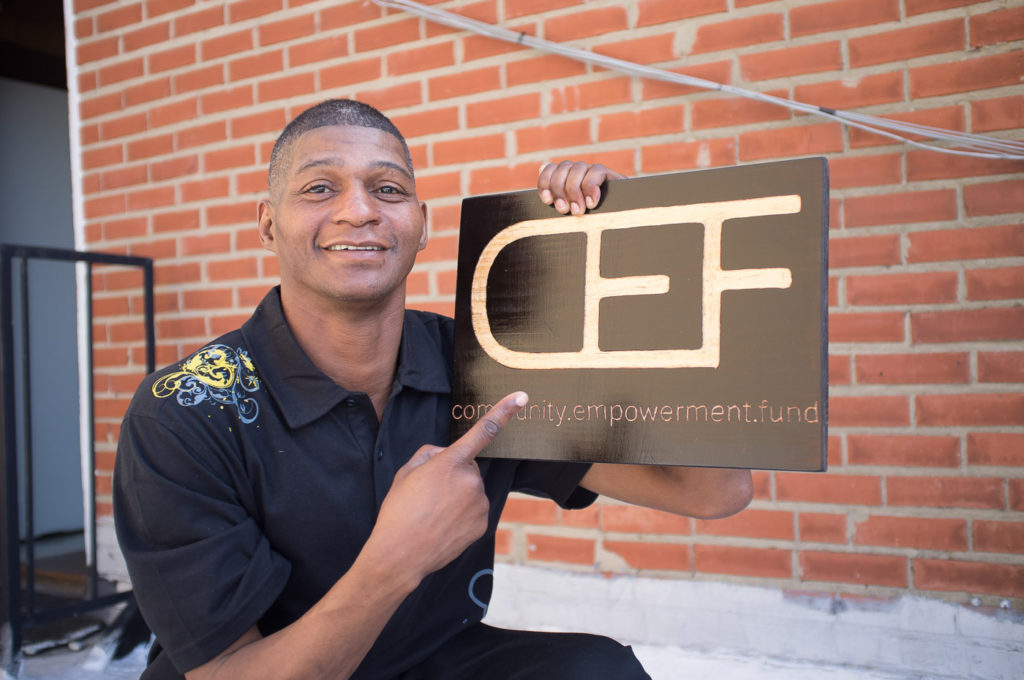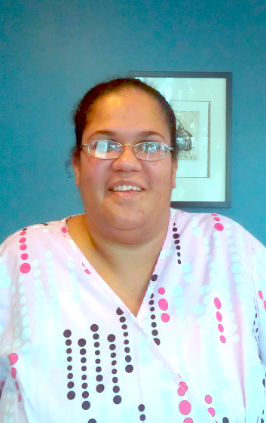
“He had sneaky eyes,” laughs Amanda. Jon, now used to Amanda’s jabs, chuckles along as we all share breakfast in her newly moved into home. “I didn’t trust anyone at all back then.”
Jon, along with his friend Audrey, have been working with Amanda as advocates for about a year at the Community Empowerment Fund (CEF), a local non-profit dedicated to helping people transition out of poverty and homelessness. Amanda first came into contact with CEF a couple of years ago and has been a constant presence ever since, at one point organizing a student-homeless “switch day” event. For the last ten years Amanda has been homeless, spending her two most recent years in a tent in Carrboro.
For the first year or so the trio had their fair share of ups and downs. Their trust problems weren’t resolved until their first fight, remembers Amanda, when Jon stood up to her and fought back. Ironically, it took Jon refusing to back down for him to gain her trust. Over the next year, the group would work on anything from obtaining food stamps to applying for jobs and acquiring a cell phone. Searching for housing was not yet a serious option for Amanda and her advocates, who were still scarred from previous letdowns.
But after the right amount of time, thought, and care Amanda, Audrey, and Jon finally decided to start the long process towards applying for housing. The next month or so would take them on a maddening journey of paperwork and applications, summoning multiple organizations in her quest for a home. Hearing her run down the list of names and groups that helped her brings mind to images of a stringed quartet, which requires every player to be in perfect harmony with the others in order for the music to work. Remembering all the people that had a hand in her success, Amanda takes a deep breath and begins running down her list of shout-outs, fondly recalling Mike from Housing for New Hope, Pamela from CASA, Bebe her social worker, Dr. Schietman, Spencer from OPC, and the 100,000 Homes Campaign, which interviewed the local homeless population to catalogue the community’s immediate needs.
But even with a small army of committed volunteers, the march toward housing was at times frustrating. The amount of paperwork was occasionally maddening. Amanda, never lacking dramatic flair, groans that she felt like she would “drown in paperwork” as another application would seem to appear every time they thought they were nearing the end. The process, Jon reflects, was great but representative of how difficult it is to access community and government resources. It would be “pretty impossible” for any individual to do this on his or her own. The stress of searching and applying for housing added to the everyday struggles of homelessness would be enough to make anyone crack.
And Amanda almost might have done just that, if CEF hadn’t “kept on top of me” and continued to challenge and push her, reminding me of Amanda and Jon’s first trust building fight. Amanda had to fight back past demons, with the threat of possible failure almost driving her crazy. She was always “waiting on the big joke,” for everything to fall apart and go back to her tent in Carrboro.
But the joke never came. Instead, on one early summer afternoon, Amanda was signing the lease for her new home. Finally, she had her own place and her everyday life became “less about survival and more about living.” Having a home was an adjustment at first though. To solve the problem, Amanda decided to throw a slumber party and invite her team of volunteers to celebrate with dinner and a movie at her new home.
The celebration capped off a long process that was full of hope and fear, dreams and doubts. “For anybody that’s having to go through this, just be patient” Amanda declares. “Where do you see your future going,” I ask Amanda as we finish breakfast in her living room. After telling of her dreams of going back to college and starting a rescue home for cats, she adds one final caveat: “well that’s the good thing about being Amanda, I don’t know. We just have to sit and catch the ride. And hang on for dear life, cause it is going to be rocky.” For Jon, Audrey, and Amanda, the past year has been just that. But whatever the future holds, Amanda knows that CEF will be by her side, and now she can “trust enough to accept help.”
Maybe Jon’s eyes aren’t that sneaky after all.









 Towards the close of Summer 2011, Technology Without Borders (a committee of the Campus Y) and the Kramden Institute came together in a joint partnership with CEF to pilot a new program: the Laptop IDA.
Towards the close of Summer 2011, Technology Without Borders (a committee of the Campus Y) and the Kramden Institute came together in a joint partnership with CEF to pilot a new program: the Laptop IDA.
